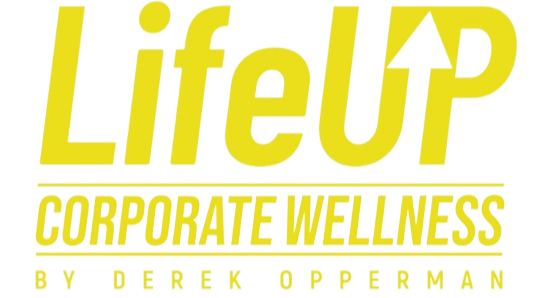
Impaired psychological wellness can disrupt clear thinking, healthy decision-making and the ability to stave off chronic diseases. But did you know that psychological issues are risk factors for other serious illnesses? I’m talking about anxiety, depression and stress. According to the CDC, anxiety is the primary risk factor for heart disease and it also precipitates other known risk factors, such as substance abuse, obesity, a sedentary lifestyle, and depression. The CDC also pegs depression to other physical health issues, especially long-term (and largely preventable!) conditions like heart disease, stroke, and diabetes.
We don’t normally consider stress a mental health problem, but it connects to mental health in a number of ways. It can cause psychological issues and make existing issues worse. Compaies can’t afford to ignore it.
But when shaping your multigenerational employee wellbeing initiatives, don’t boil the ocean! Focus on risk factors that are the most prevalent within your population. You may find that cross-generationally there are plenty of similarities. For instance…
Anxiety, depression and stress are common to all generations
Consider these three signs of ill-health that all generations of employees report, from Gen-Z to Boomers. Each of these conditions significantly impacts your company’s productivity:
Anxiety and depression
Record numbers of employees report feeling anxious and depressed. Champion Health’s 2023 report lays bare the shocking statistics. A full 60% of employees experience anxiety, and 56% report depression symptoms, with 22% of them claiming they are ‘clinically depressed.’.
And although most workers won’t report a mental health diagnosis, one in four employees meet classic criteria for ‘clinically relevant’ anxiety and depression symptoms, suggesting they’d benefit from the support of mental health professionals.
Here’s the thing…
A recent survey by the American Psychiatric Association, indicates “more than four in ten employees are concerned about retaliation if they seek mental health care or take time off for their mental health.” And recent Bureau of Labor Statistics data shows that 36% of US employees experience depression and anxiety on a daily basis. According to the American Psychiatric Association, untreated depression accounts for productivity reduction of a staggering 35%. And it contributes a $210.5 billion annual cost to the US economy in terms of reduced productivity, absenteeism and medical costs.
How can HR help?
First, it’s crucial to reduce any stigma associated with mental health issues. Openly address the commonness of suffering from them and provide easy access to education, resources, and support – especially your EAP and mental health services if you have them. Encourage your managers to promote and allow mental health days. Familiarize yourself with meditation apps and online stress-reduction classes, and make sure employees know about them. Remember that different generations prefer different modes of contact, so avail yourself of all communication channels.
Stress
Since the pandemic, 67% of workers report suffering from moderate to high stress levels, according to the 2023 Champion Health report. And employees are reporting catastrophically lower levels of productivity. Productivity and stress are closely linked. That’s why it pays to step up and invest significantly in workplace wellbeing strategies that support employees to prevail over the struggles they face. There are several steps companies can take to reverse this negative pattern.
How can HR help?
When you HR professionals feel fed up and worn down, how can you lead stressed-out teams yourself? HR leaders have faced this bugbear since the pandemic. But here is a tip that the Champion Health report reveals: employees are at their most energetic at 10:22 in the morning and most blah-feeling at 1:27 pm. How could you leverage that information to strategize some wellbeing plans? How about initiating a (healthy) afternoon snack break or schedule laid-back team chats at that time?
Reducing busywork is perhaps the easiest way to combat employee burnout. Consider which tasks are crucial to your company’s core goals and get rid of any nonessential tasks. Doing this will allow your employees to focus on their most requisite assignments.
Don’t forget – small steps like these can lead to sweeping organizational improvements for a company and all its generations. And remember, we are always here to help.
To your health!
Derek

